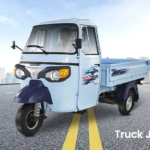Even though it’s not particularly appealing, garbage is a problem every city faces. Small business cars have been developed in India to solve this issue. These tiny workhorses have been modified to collect the rubbish effectively through even the busiest city streets. This blog will look into the innovative ways that small commercial vehicles are customised for garbage collection in India. These vehicles have been adapted to suit India’s bustling cities’ unique needs, from partitioning containers to GPS tracking. Join us as we explore how these unassuming vehicles impact India’s waste management efforts.
Introduction To The Role Of Small Commercial Vehicles In Waste Management
In any metropolitan region, garbage collection is a crucial function. Garbage disposal is also rising quickly, along with population growth and urbanisation. To manage this garbage effectively, small commercial vehicles have become common in several nations, including India. This article will discuss how garbage collection with small commercial vehicles is customised in India.
Small Commercial Vehicles For Garbage Collection
Small commercial vehicles are employed for rubbish collection in many urban locations because of their size and mobility. In addition, these vehicles, such as Piaggio Ape E-Xtra FX Max, can be tailored to meet the local government’s needs and are reasonably priced.
Customisation For Garbage Collection
Garbage collection with small commercial vehicles in India is customised in many ways. Let’s discuss some of the most common customisations:
Container Size And Capacity
Depending on the needs of the local authorities, the small commercial vehicles used for rubbish collection have varying container sizes and capacities. Consequently, smaller containers are utilised in some locations and are emptied more frequently, whereas larger containers are used in other places and are emptied less frequently.
Partitioning
The containers in small commercial vehicles such as Mahindra Bolero Camper Pickup are partitioned to optimise the collection of different kinds of waste. This ensures that recyclable garbage is separated from non-recyclable waste and that organic waste is distinguished from inorganic waste.
Compaction
Compactors are sometimes placed in small commercial vehicles to compress rubbish, which lowers the quantity of garbage collection trips needed. This results in cost savings for the local authorities.
GPS And Tracking
Many small commercial vehicles in India have GPS and tracking systems to ensure timely and efficient garbage collection. So this allows the local authorities to monitor the location of the vehicles and ensure that they are collecting the waste as per the schedule.
Hygiene And Safety
The small commercial vehicles have safety features, including railings, non-slip floors, and fire extinguishers to safeguard the health and safety of the waste collection workers. Gloves and masks are also provided to protect the workers from dangerous chemicals and odours.
Challenges In Garbage Collection With Small Commercial Vehicles
Small commercial vehicles have many benefits for waste collection but also drawbacks. Here are some of the difficulties:
Lack Of Awareness
In many areas, the residents are unaware of the segregation and disposal of waste. This results in mixed waste being collected, which makes it hard to recycle and reuse the trash.
It is difficult for the garbage picker in small commercial vehicles to collect all the waste when it has been laid up into smaller bits. As a result, some of the trash may be left behind, which could cause contamination in the area.
Improper Disposal
In many regions, there must be better infrastructure for proper disposal, even after collecting trash. In addition, there are pollution and health risks due to waste frequently thrown in public areas.
Many garbage collectors fail to pick up the garbage in cases like this, where there is no right waste disposal. Furthermore, this worsens contamination and emphasises how much more infrastructure is required to manage trash adequately.
Limited Capacity
Due to their limited capacity, small commercial vehicles must make several trips to collect waste. Traffic congestion as a result of this reduces the effectiveness of the rubbish collection procedure.
Maintenance
Small commercial vehicles require regular maintenance to ensure their proper functioning. Furthermore, in many areas, the lack of adequate maintenance results in breakdowns, which affects the garbage collection schedule.
Conclusion
In many Indian metropolitan areas, garbage collection by small commercial vehicles has become a crucial component of waste management. Garbage collection is now more efficient and economical due to the customisation of these commercial vehicles that can meet the local authorities needs. But several issues must be resolved.










